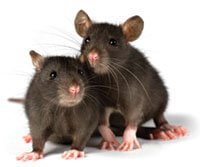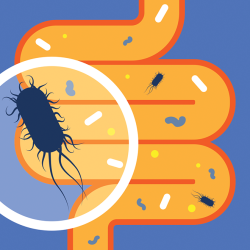Compassionate Critters
Our ability to understand another’s feelings may be genetic.
If you have pets or have worked around animals, you know that they can pick up on the emotional states of those around them. A new study of mice has shown that this ability to feel empathy is coded in the genes.
“Mice are capable of a more complex form of empathy than we ever believed possible,” says Garet Lahvis, now a professor of behavioral neuroscience at Oregon Health and Science University, who conducted the study while at the UW. “We believe there’s a genetic contribution to the ability for empathy that has broad implications for autism research and other psychosocial disorders.”
Lahvis and then-graduate student Jules Panksepp PhD’09 found that mice from a highly social strain learned to associate a specific sound and cage with something negative simply by hearing a distress squeak from a mouse in that cage. A less social, genetically different strain failed to learn any connection between the cues and the other mouse’s distress.
The differences between the two strains reveal a genetic component to the ability to perceive and act on another’s emotional state.
Animal models of complex social behaviors like empathy should help analyze what causes social interaction deficits, such as those seen in human psychosocial disorders including autism, schizophrenia, depression, and addiction, the researchers say.
“The core of empathy is being able to have an emotional experience and share that experience with another,” says Panksepp. “A simplified model of it in a mouse may help us get closer to modeling symptoms of human disorders.”
Published in the Summer 2009 issue




Comments
No comments posted yet.